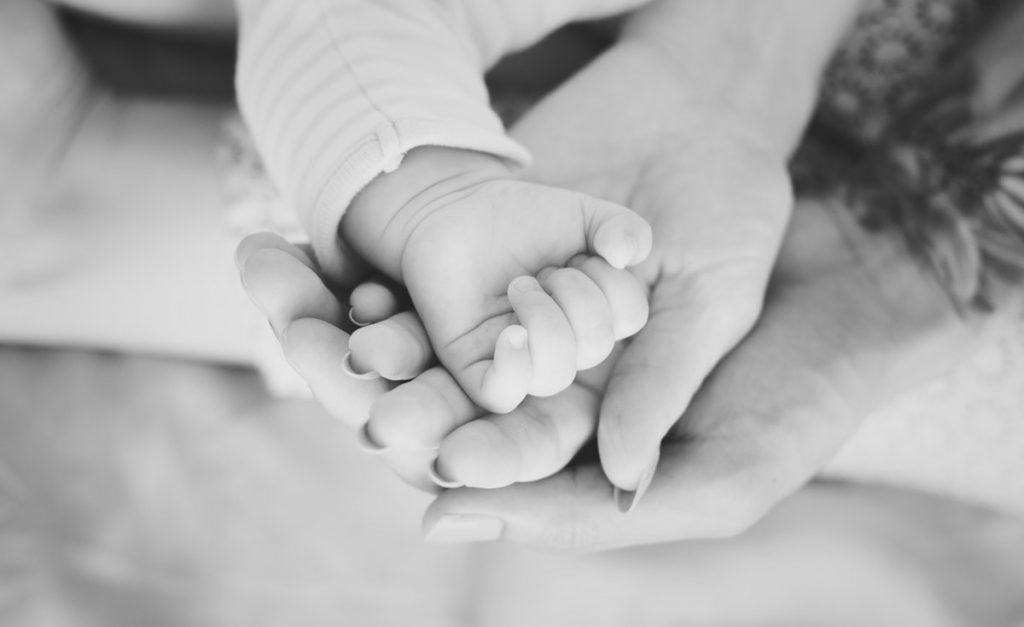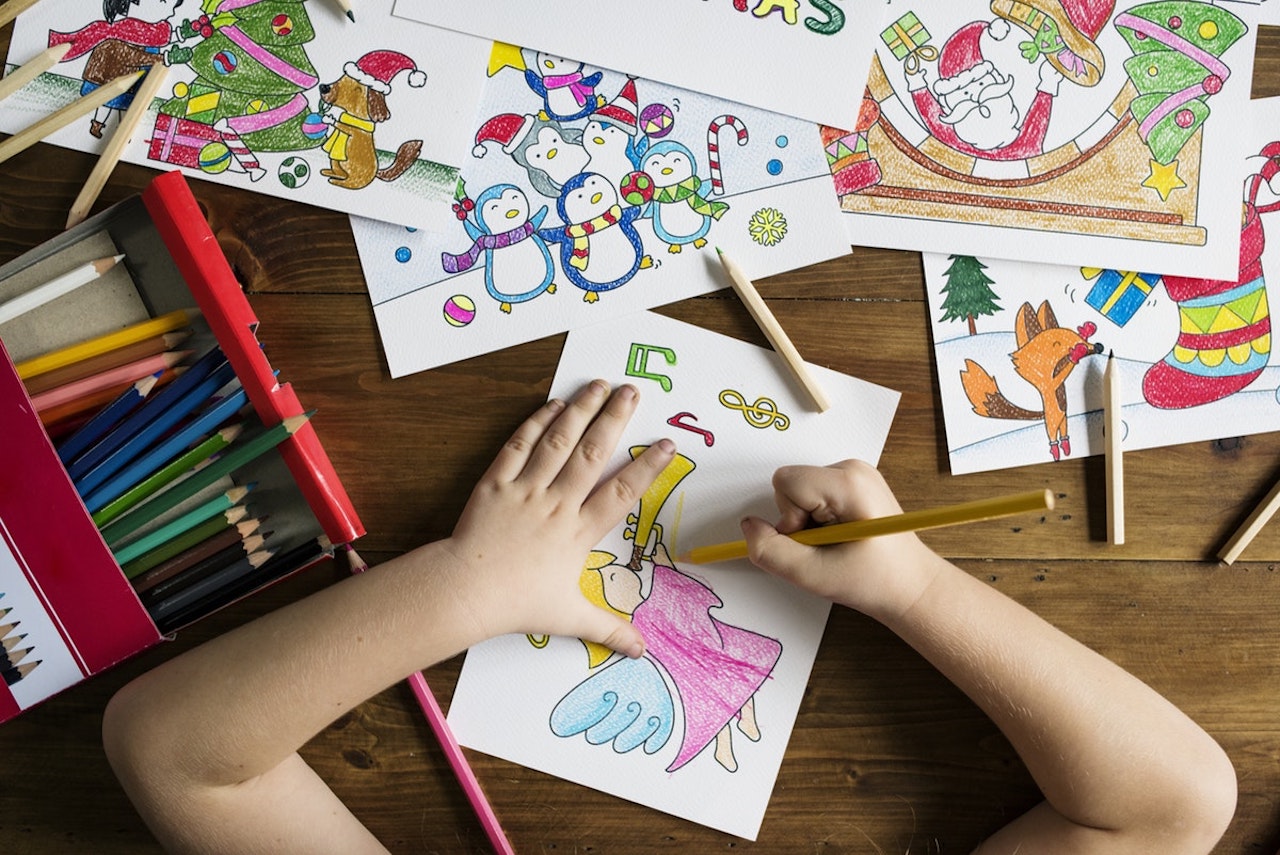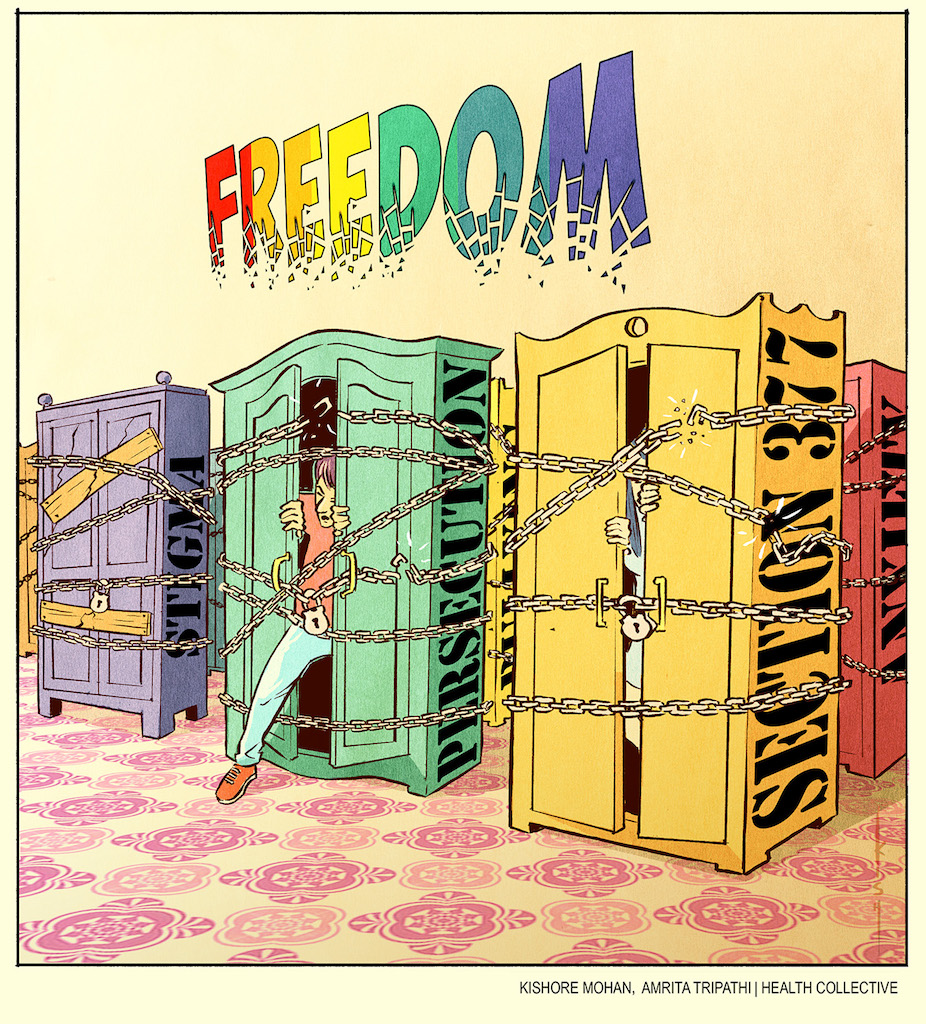Heart Mothers: Adoption and Maternal Mental Health
By Swarnima Bhattacharya
There are as many motherhoods as there are mothers. Their subjectivity, journeys and experiences all mould and galvanise, defining the experience of motherhood in a multiplicity of ways. Despite being an intensely personal, fluid experience, motherhood is mediated by external, socio-cultural prescriptions. There are spoken and unspoken codes around what a “good mother” should be, which often strike a dissonant chord with lived experience. And when it comes to maternal mental health, while some of us recognise the urgent need to address postpartum depression, we are yet to develop the language to address depression in post-adoptive mothers, even though it is very “real”.
ALSO READ: MORE THAN JUST THE BLUES – LIFE WITH PPD
There is a lot in the process, and aftermath, of adoption that can overwhelm parents, particularly mothers, who already bear most of the emotional burden in parenting.
“When it comes to post-adoption mental health, the reason for adoption often becomes the central cornerstone. Attitudes tend to differ greatly, if adoption is the last choice for having a baby, versus when it is an ‘active’ choice,” Ishita Pateria, Counselling Psychologist and Psychotherapist, and Founder of State of Mind – The Emotional Wellness Centre, tells The Health Collective.
She adds that many a time, women suffer from grave self-esteem issues because their ability to “be a mother” is questioned, if and when conception and pregnancy have not happened at some point.
This sentiment is echoed by entrepreneur Priya G. Chakrabarty, founder of Mystique Hands, who adopted a baby boy following an unsuccessful attempt at IVF. She talks about the intense “scrutiny” she was placed under by her family. “I felt like I was in the Bigg Boss house, not getting the respect of a mother. I felt like I always had to keep my ‘PR machinery’ on, making sure that I was being a good mother,” she says with dry humour, reminiscing about her trauma and isolation in the early years of motherhood.
Despite the evolving attitudes towards adoption in some circles, in many cases there is a sense of lingering trauma or a sense of inadequacy when biology… ‘fails’, for lack of a better word. Pateria says, “Pregnancy is made out to be such a natural, normal thing. So when it does not happen, women often feel compelled to ask that why (is) this natural process…not happening with me? What is wrong with me?”
Over time, many women internalise the unfair expectations, which gets compounded by a lack of understanding about the experience of adoption, and the lack of awareness of a potential need for counselling or mental health intervention, not to mention additional emotional support.
Anu Gupta, who adopted a baby girl a few years ago, tells The Health Collective, “Because in this case pregnancy is not involved, people think you don’t need help.”
ALSO READ: MOTHERHOOD: THE ROLLER COASTER RIDE
And then in India, some parents have to wait years before finally being united with the child. Dr. Saras Bhaskar, an adoption counsellor who also adopted a daughter avers, “The waiting period for adoption is long and complicated.” This is a period of uncertainty, which can come with its own share of intrusive questions, as well as fears, and a drop in confidence.
Gupta recalls how she used to “feel cranky, that something or the other is wrong”. She tells the Health Collective, “I was snapping. I felt that no matter how I was looking or what kind of clothes I was wearing, I always felt unattractive. I went through a long phase of depression during this time.”
For anyone going through something similar? Gupta recommends consulting an expert to deal with such phases.
The long waiting period can also fuel high expectations and fill the parents with a deep sense of gratitude when the baby finally arrives. This excitement is rapidly countered by the real challenges — exhaustion, fatigue, bonding issues as well as the challenges of acclimatising the baby to the new environment. Another obstacle is, addressing the gaps in nutrition and development (cultural, physical, psychological) in adopted children.
Dr. Bhaskar shares how many parents take time to learn how the child is placed, what are her health needs, what she is used to eating, and how to slowly and patiently adapt the child to the new, permanent surroundings.
Gupta shares, “Everyone thinks that rest is associated with pregnancy and delivery. People around me found it difficult to understand why I was feeling exhausted.”

What About Fathers?
While women have to carry the larger burden of social scrutiny and censure, it has been found that fathers are also significantly affected by the very same factors, but the manifestations vary. Experts, and couples who have chosen adoption, insist on thorough couples’ therapy so that both individuals can arrive at mutually beneficial coping mechanisms, and find ways of being supportive to one another.
This is even more important because several emotional challenges lie ahead, post adoption. Not only the sheer volume of work post adoption, but also fostering attachment and integration can be a gruelling challenge.
Psychologist Ishita Pateria says, “Not just the child, but even the parents can be scared of abandonment and rejection”. The pressure of “completing” a family is even more keenly felt among women because the narrative around motherhood is still skewed.
The glorification of pregnancy and labour pain are still considered as the essential rites of passage into motherhood. Gayatri Abraham, Founder of Padme, a resource centre for adoption, shares, “Motherhood should not be labelled. We should not be using terms like ‘birth mothers’ or ‘adoptive mothers’. Language matters. Motherhood is motherhood.”
Indeed, our language around motherhood is far from being inclusive. In language and in policy, we have been unable to breakdown this unfair barrier. The Maternity Bill has, in recent times, been one of the most important documents recognising the toils of motherhood — addressing challenges such as mothers’ health, workplace struggles and more. Here too, an unfair distinction is made between “biological mothers” who are entitled to receive up to 26 weeks leave, while “adoptive mothers” receive only upto 12 weeks if a child below 3 months of age is adopted.
Needless to say, this is far from adequate for parents to bond with the baby, or eke out time for rest and recovery.
Gupta shares, “Pregnant women are inundated with advice on how to take care of themselves and the baby. But after adoption there is much less help. In fact, no one understands the unique challenges of the situation.”
Undoubtedly this takes a huge toll on mothers’ mental health, especially because adoptive mothers face enormous perception challenges. The arrival of the baby in the family can be a confusing time for mothers because the challenges of integration are at odds with what is culturally expected of mothers– to feel and express unfettered joy of motherhood.
In reality, however, attachment challenges are considerably high, compounded by the stress of parenting, which can trigger feelings of guilt and shame in mothers. According to Mayo Clinic, the hormonal aspect of postpartum depression is just one of the factors, which also includes sleep deprivation, lifestyle and environment. At some point we have to reflect how external judgements and prescriptions are internalised, taking a toll on women’s mental health.
So how can parents and women prepare for this phase of life?
Abraham says, “Eventually it does not matter how you arrive at the adoption route, but it is important to close the previous chapters and give yourself the healing period to replenish yourself emotionally, mentally, physically. You have to prepare yourself emotionally for the cultural differences with your child and be cognisant of the child’s needs once she comes into the family. Acquaint yourself with good paediatricians, parent-support groups and therapists. When in doubt, reach out to an expert.”
Pateria highlights the need to accept the child even before you get her. She also says, “It is important to bring each stakeholder in the family on the same page, identifying areas where you need help and understanding what’s affecting you. Support systems need to be created beforehand and it is important to recognise that it will be an emotionally overwhelming experience.”
For Chakrabarty, the most important thing to remember, especially for the mothers, is to always keep an eye on their own health so that they can invest properly in the child. She also recommends rigorous couple’s counselling. In dealing with judgements from people around you, Gupta says, “Love makes a family, not biology.”
The time has come to view motherhood as more than just characterised by the pain and worry that never quits. And it is definitely time to stop glorifying that pain, and to create systems to reduce it instead.
Views expressed are personal. The Health Collective cannot substitute for expert advice from a trained professional.
About the Author: Swanima Bhattacharya is the Founder of TheaCare, a women’s health companion and the curator of FemmeCon, a women’s health festival in India.
Feature Image by rawpixel.com





Pingback: Mental Health Books: Real Stories of Dealing With Depression – The Health Collective
A million thanks for posting this information….
A million thanks for posting this information..
Really nice article. Keep posting.